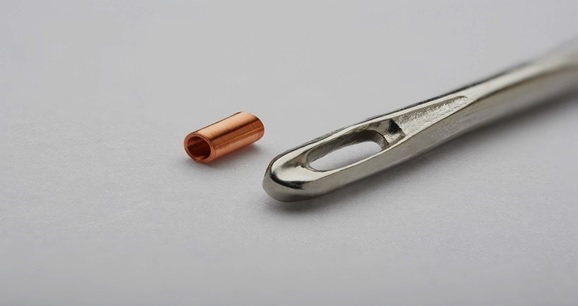With the development of science and technology, the reach of medical science has immensely enhanced. Medical coils and sensors are significant examples of technology development. The invention of minimally invasive sensors has assisted doctors and medical treatment in several ways such as-
- Through the medical sensors, it has become possible to reach some areas of the body that could not imagine before this.
- In cryo cancer treatment, to eliminate the tumors through freezing and heating, sensors are useful.
- In order to lower the energy consumption.
- To lessen the disruption of body function.
- To enhance the life span of the implants.
As the demand for medical sensors is increasing rapidly, designers are being more aware of this technology. However, it is important to understand that the manufacturing of medical sensors involves the making of ultra-fine wires and miniature coils. Manufacturing of these sensors takes place in a designed in-house building with extremely precise and custom-made equipment.
The Requirements to Manufacture The Medical Coils and Sensors:
It is important to note that the medical sensors require the coils, therefore, the manufacturing of the coils is a significant area where the manufacturers need to pay attention.
- The manufacturing process of coils must fulfill the provided specifications of the client.
- In order to avoid the errors, the coils are required to be manufactured following high standards and effective quality.
- Manufacturers must follow ISO 13485 in the manufacturing process and the clients can inspect that.
- Manufacturers also need to maintain the traceability of the material so that for any quarry, one can trace back to the raw materials.
- This manufacturing process of the medical coils and sensors requires special equipment and the manufacturers may need to design the equipment according to the requirements of the customers.
Areas of Applications:
- Therapeutic Application: Sensors play a significant role in electrophysiology treatments.
- Diagnostics: In order to conduct wireless communication, sensors act as vital signs in miniature implants.
- Implants: To make the active implants for controlling and monitoring miniature pacemakers and for the brain stimulation therapies.
- Navigation: In order to find out the targeted radiation catheters, highly accurate ablations, stent positioning, implanted markers, targeted drug delivery, and interbody tagging.
- Orthopedic Aids: To manufacture the operating systems using electromagnetic pulses, micro-coils are required.
- Temperature Measurement: In order to prepare the miniature thermocouple on the basis of thermal compression bonding technology.
It is important to understand that micro-coils are a significant component of the system. If the manufacturers rely on the Heat-based soldering process to connect ultra-fine wires that can lead to several poor outcomes such as poor connectivity, oxidation of the connection, degraded connection, heat damage, etc. Therefore, modern-day manufacturers are using thermal compression bonding technology to prepare the medical coils and sensors. This technology is effective to connect ultra-fine wires of different diameters. As the ultra-fine wires are responsible for the connectivity of the medical coils and sensors, manufacturers are focusing to make the ultra-fine wires of copper and other materials of different diameters such as wires of 9-micron diameter. Manufacturers are now preferring to use thermal compression bonding technology to manufacture the medical coils and sensors for high reliability, strain-free, and corrosion-free connectivity.

